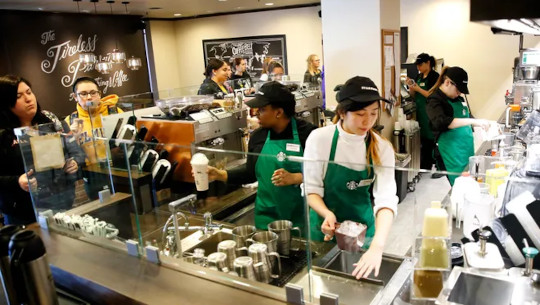
The GOP has long advocated the trickle-down mantra, which suggests that by providing tax breaks and other benefits to the wealthy, prosperity will eventually "trickle down" to the rest of the population.

The GOP has long advocated the trickle-down mantra, which suggests that by providing tax breaks and other benefits to the wealthy, prosperity will eventually "trickle down" to the rest of the population. This notion has been a cornerstone of conservative economic policy for decades. However, there is an alternative perspective that states that wage gains or rising tides "raise all boats," meaning that everyone benefits when wages increase, even those not directly affected.
The Real Job Creators
The wealthy tend to save their gains or speculate with them, often raising commodity prices like gas and oil in the process. This, in turn, increases prices at the consumer level. Additionally, the wealthy often invest their gains, but these days they are more likely to do so in emerging markets where returns are higher. While these activities may contribute to the overall economy, they do not necessarily create jobs for the average person in our local economy.
On the other hand, the poor and middle class typically spend their gains right here at home. They purchase goods and services that support local businesses, which in turn create jobs. This makes the poor and middle class the true engine that drives economic growth and makes them the "job creators."
The Balance of Raising Wages
Raising wages is a delicate balancing act. If done too quickly, it can be inflationary, leading to rising prices and potentially undermining the benefits of the wage increase. On the other hand, raising wages too slowly or not at all can be deflationary and destabilizing, leading to a stagnating economy and potential social unrest.
The GOP's argument that employees have control over their wages and can always leave for better pay is, unfortunately, often far from reality. For many workers, particularly those without strong employee representation, finding higher-paying jobs is difficult, and the power dynamics in the workplace heavily favor employers.
The Role of Governments in Setting Minimum Standards
Governments should interfere as little as possible in the economy while keeping a global perspective in mind. It is in this context that the minimum wage and other employee-rights dictated by the state work best. When governments set the framework for businesses to follow, it can reduce the likelihood of conflict between employers and employees.
A state that represents both business owners and workers equally and fairly, without being swayed by monied interests, often works better than union representation. However, such governments are rarer than they should be, which highlights the need for vigilant citizens and strong worker advocacy groups.
The Impact of Minimum Wage Increases on Surrounding Wages
When minimum wages are increased, there is often a ripple effect on surrounding wages. Workers who were previously earning close to the minimum wage may see their wages increase as well, even if they were not directly affected by the policy change. This can be seen as an extension of the "rising tide raises all boats" principle, where improvements for one group can lead to broader benefits for the entire workforce.
Similarly, wage gains achieved by unions can also have an indirect impact on other workers' wages. Through collective bargaining, unions can negotiate higher wages and benefits for their members, which can then set a precedent for other employers in the industry. This can help to lift the overall wage floor and create a more equitable distribution of income.
The real job creators in our economy are the poor and middle class who drive economic growth through their spending habits. By supporting local businesses and industries, they create a demand for goods and services that ultimately leads to job creation. In contrast, the wealthy often save, speculate, or invest their gains in ways that do not directly benefit the average worker or the local economy.
To maximize the positive impact of wage increases, it is essential to strike a balance between raising wages too fast, which can lead to inflation, and raising them too slowly or not at all, which can be deflationary and destabilizing. Achieving this balance requires careful consideration of the economic context and the needs of both workers and businesses.
Governments have a crucial role to play in setting minimum standards for employee rights, including establishing a minimum wage that ensures a decent standard of living for all workers. By doing so, governments can create a framework that supports both business owners and workers, reducing the likelihood of conflict and promoting a more equitable distribution of wealth.
The impact of minimum wage increases and wage gains achieved by unions extends beyond those directly affected, helping to raise the overall wage floor and improve conditions for workers throughout the economy. By recognizing the vital role that the poor and middle class play as job creators and supporting policies that promote wage growth, we can create a more prosperous and equitable society for all.
jennings_bio
books_economy

